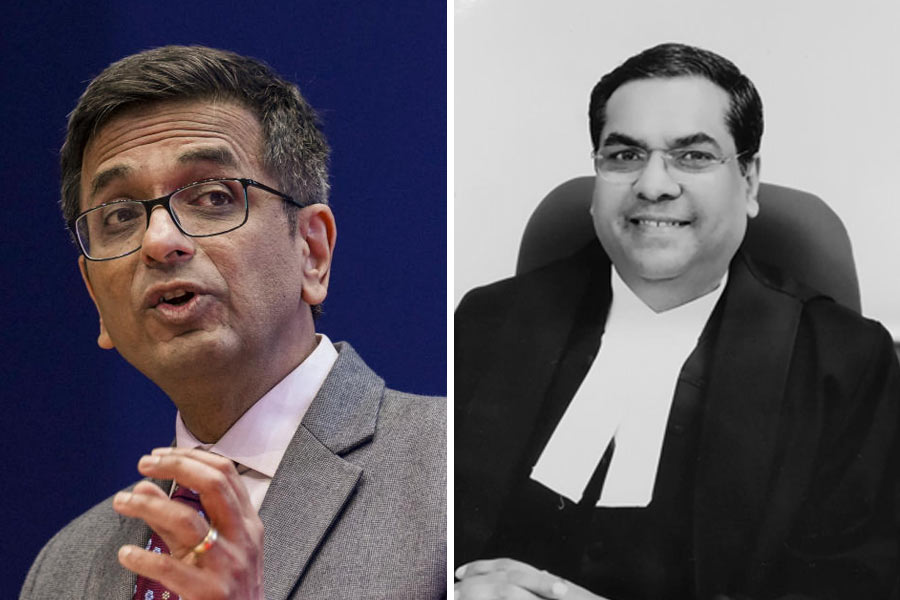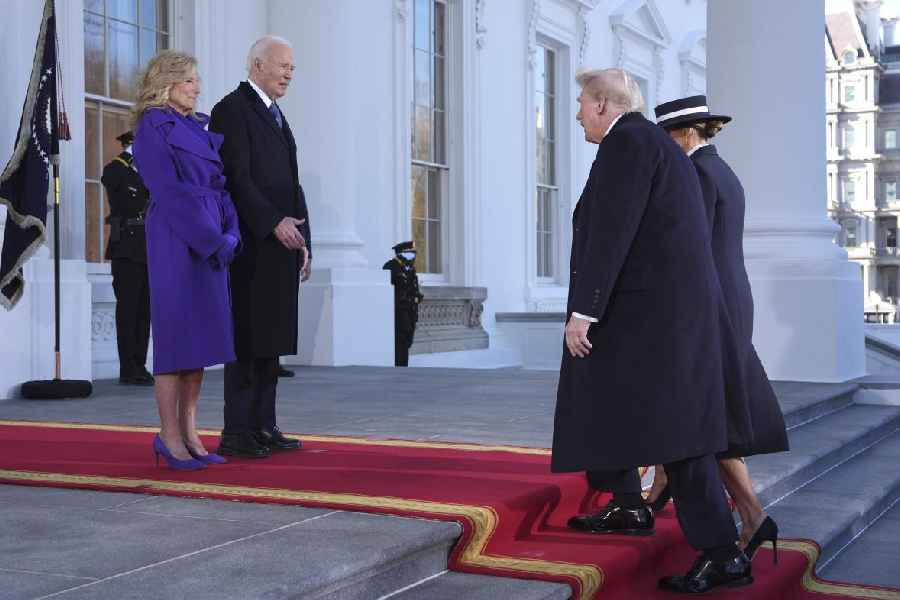Chief Justice of India (CJI) D Y Chandrachud has set in motion the process of appointment of his successor after he recommended the name of Justice Sanjiv Khanna, the senior-most judge after the outgoing CJI, to the Centre.
According to sources, CJI Chandrachud had on Wednesday written a letter of recommendation to the Union Law Ministry naming Justice Khanna as his successor.
Justice Khanna is set to become the 51st CJI on November 11. Elevated as a judge of the Supreme Court on January 18, 2019, Justice Khanna will superannuate on May 13, 2025, making it a tenure of little over six months.
Justice Khanna was elevated as an additional judge of the Delhi High Court in 2005 and was made a permanent judge in 2006.
Born on May 14, 1960, he studied law at the Campus Law Centre of Delhi University.
Some of the notable judgments of Justice Khanna in the Supreme Court include upholding the use of Electronic Voting Machines in elections, saying the devices were secure and eliminated booth capturing and bogus voting.
He was also part of the five-judge bench that declared the electoral bond scheme, meant for funding of political parties, as unconstitutional.
Justice Khanna was a part of the five-judge bench, which upheld the Centre's 2019 decision abrogating Article 370 of the Constitution which granted a special status to the erstwhile state of Jammu and Kashmir.
Justice Khanna, who is the senior-most judge after the outgoing CJI, and the executive chairman of the National Legal Service Authority (NALSA), had granted interim bail to the then Delhi Chief Minister Arvind Kejriwal, an accused in the alleged Delhi excise policy scam cases, for campaigning in Lok Sabha elections.
He is the nephew of former apex court judge Justice H R Khanna, who was part of the landmark verdict propounding the basic structure doctrine in Kesavananda Bharati case of 1973.
Former apex court judge Justice H R Khanna was the lone dissenting judge in the famous ADM Jabalpur case of 1976 wherein it was held that during the emergency even the fundamental right to life and personal liberty of an individual can be suspended. He was subsequently superseded and could not become the CJI following which he resigned.
Justice Khanna will assume charges on November 11, after the retirement of CJI Chandrachud on November 10, 2024, after serving for two years at the helm of the Indian judiciary.
The retirement age of Supreme Court judges is 65 years.
According to sources, the Centre recently asked CJI Chandrachud to name his successor.
According to the memorandum of procedure (MoP) -- a set of documents guiding appointment, elevation and transfer of high court and Supreme Court judges -- the law minister writes to the CJI to name his or her successor.
According to sources, Minister of State, Ministry of Law and Justice (independent charge) Arjun Ram Meghwal had written to CJI Chandrachud asking him to name his successor.
The MoP says the senior-most judge of the apex court is considered fit to hold the office of the CJI and the views of the outgoing head of the judiciary have to be sought "at an appropriate time".
The MoP, however, does not specify the time limit for the initiation of the process of recommending the name of the successor CJI.
Except for the headline, this story has not been edited by The Telegraph Online staff and has been published from a syndicated feed.











